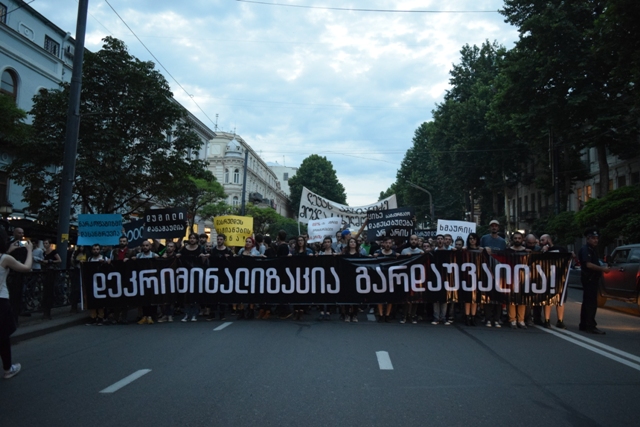

 The Constitutional Court of Georgia ruled on Monday that people can no longer face administrative punishments, such as fines, for consuming cannabis. The decision, which is effective immediately, comes eight months after the court abolished criminal sanctions for cannabis use.
The Constitutional Court of Georgia ruled on Monday that people can no longer face administrative punishments, such as fines, for consuming cannabis. The decision, which is effective immediately, comes eight months after the court abolished criminal sanctions for cannabis use.
The ruling concerns only the consumption of cannabis, while cultivation and selling remain a crime. The decision came into force from the moment it was announced.
The verdict, delivered by the four senior judges on the court, said that punishing someone for consuming cannabis would comply with the constitution only if consumption put a third person at risk, such as consuming the drug in an educational facility, certain public spaces like in public transport, or in the presence of children.
In November 2017 the Constitution Court satisfied an appeal by non-parliamentary opposition party Girchi that it was unconstitutional to criminally prosecute people for consuming cannabis.
The party then filed another suit at the Constitutional Court to abolish administrative punishments as well, as after the first ruling consuming cannabis was punishable with a fine of up to ₾500 ($200) or corrective work of one to six months.
Monday’s ruling reads that consumption of cannabis is ‘an action protected by the right to a person’s free development’, article 16 of the constitution.
In the lawsuit, Girchi argued that consuming cannabis ‘does not constitute a public threat’.
‘It can only harm the health of the consumer, who is responsible for the results of the action’, the lawsuit read.
In a press briefing shortly after the court’s ruling was announced, Girchi’s leader, Zurab Japaridze, said that the ruling makes Georgia the first country in the post-soviet space to legalise cannabis consumption.
‘This wasn’t a fight for cannabis, this was a fight for freedom’, he said, adding that Monday’s decision made Georgia freer than it was before.
Speaking of administrative punishments for cultivating cannabis, Japaridze said that it was now up to the government to decide what kind of policy it should have as the Constitutional Court cannot decide for them.
Meanwhile, parliamentary hearings on Georgia’s drug decriminalisation bill, which could see the possession of all drugs decriminalised in Georgia, are ongoing. The hearings have been postponed several times, with parliament postponing them for the third time in May 2018.
[Read on OC Media: Georgia’s ‘war against the people’ and the war against a ‘system that stinks’]









